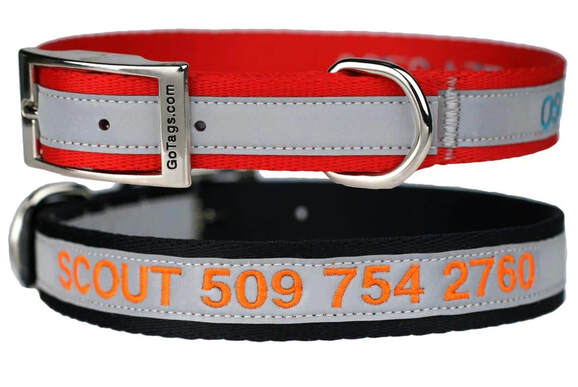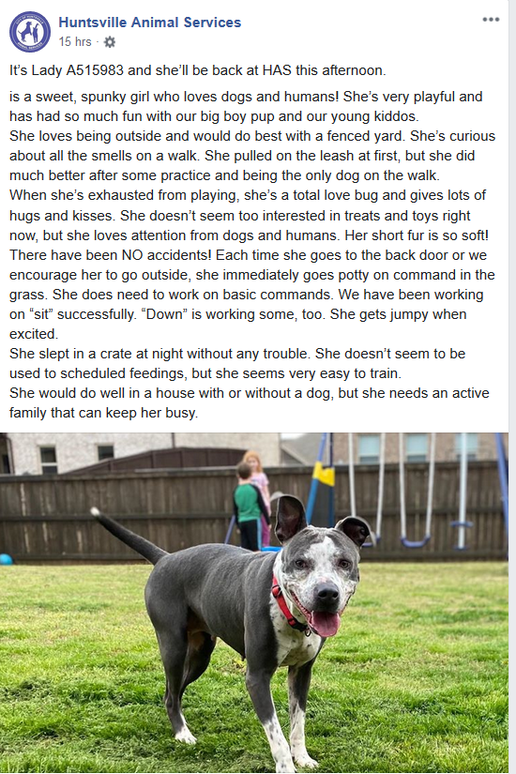|
I published a blog on Wednesday of this week about our COVID 19 public crisis and what animal shelters can do to reduce intake of animals into shelters and increase output of animals from shelters. The impetus for the blog was a call I had with a contact of mine who asked what I knew about rumors that some shelters were resorting to population control killing. I used the blog to again promote the programs and services of the No Kill Equation while highlighting some great things being done by shelters to help animals. Today let's talk about the rest of us. About those of us who share our lives with companion animals. The choices we make regarding our pets which are reflected in our personal behavior are more important now than ever before when it comes to keeping animals alive - not just our own animals, but the animals in our communities. I realize that many people don't give a whole lot of thought to how their personal choices affect how animal shelters operate. What we do as individuals absolutely affects shelters either for good or for bad. Keep Your Dogs Contained Most places have laws that require animals, particularly dogs, be contained so they do not run at large. Now is the time to take extraordinary measures to keep your pets under your control. Do not let your dogs run loose like it is 1845. It is not only dangerous for your dog, but it can be dangerous for the people who encounter your dog whether they are driving or just happen to cross paths. Make sure you keep gates closed, keep doors closed and you teach your children to do the same. If your dog gets loose, he or she is not only apt to be injured, but is apt to end up in a local animal control system. Do your part to keep that from happening not only to reduce the number of dogs in local shelters, but to avoid putting the life of your dog at risk. Your dog who is well behaved at home may do very poorly in a shelter environment and that may lead to his or her death. Make Sure Your Pets Can be Identified Now is the time to have your pet microchipped so he or she can be identified. Chipping is a cheap, easy way to help shelters, veterinary offices and law enforcement authorities know your pet's identity to get them back to you quickly if they do get loose or even if they are stolen. If you are on a Stay at Home Order and cannot get to a veterinary office, you can order an identification tag or collar for your pet so that someone who finds them can contact you easily. For cats, breakaway collars are recommended to avoid strangulation. Identify a Pet Parent I have written about the concept of a Pet Parent before. Much like some people name a Godparent for a child, a Pet Parent is someone who has agreed to take your pet or pets for you in the event of your death, hospitalization or if you can no longer care for them for some reason. Please do not assume that your family members or friends will automatically take your pets and care for them as you do in the event the unthinkable happens. Have an actual conversation with a family member or friend to ensure not only that they commit to take your pets, but that they know how to get to them in your absence and how to care for them. Our Pet Parent is one of my cousins. She has information about pet history, veterinary contacts, local contacts to get into our home and we have made provisions for the costs of care in the event of our deaths. No one likes to think of the worst case scenario, but it is the responsible thing to do. Related to COVID 19, you also need a Pet Parent for short-term housing and care. Think of this as a foster for your pet who will care for your pet temporarily until you have recovered and can care for your pet yourself. Don't allow your pet to end up in your local animal shelter because you didn't have a plan in place. Pet Supplies - Be Ready In the middle of shopping for the human members of your family by having a supply of food to last for a while, don't forget your pets. Make sure you have enough pet food to last a while. Make sure you have your pet's medications refilled and documented with dosages and administering directions. Have a crate and extra supplies on hand if you need to relocate your pets quickly. Keep all animal vaccines up to date and have copies of those records available in the event that boarding becomes necessary. Help Local Animal Shelters There are a host of ways you can help your local animal shelter during this crisis provided you are not under a Shelter at Home Order. You can foster an animal to get him or her out of the shelter and help expedite the adoption process. Many shelters offer sleepover fosters, weekend fosters, or other short-term fosters which not only frees up shelter space, but also helps the shelter to learn about the true personality of the animal. Very few dogs and cats behave in shelters the same way they behave in a home environment. When you foster, you learn about the ability of the animal to ride in a vehicle, get along with other animals, get along with children and about their personalities in general. That information, along with photos and video clips can be used by the shelter to help place the animal in a new home. It's much easier to "market" animals to new homes when more is known about who they really are, beyond what we see. Now is also a wonderful time to adopt a shelter animal. Adopting a new-to-you pet now gives you a wonderful opportunity to help your adopted shelter animal decompress, learn about structure and become a member of your family. It can be hard to do that when working your normal hours at an office. Extra time at home makes the process easier for you and for your new pet.
You can also donate to your local animal shelter to help during the crisis. Some shelters may need food, blankets, beds, or enrichment items like Kongs and treats to keep shelter animals occupied during their shelter stay. Contact your local animal shelter to find out what they may need; many shelter have Facebook pages where they regularly list items they need donated. Donate to a Local Pet Food Bank Even if you have plenty of pet food on hand, others may not. If there is an organization in your community which operates a pet food bank, please consider donating so you can help another person keep their pet during difficult financial times. Many people are losing their jobs and may think they have to surrender their pet to a shelter because they can no longer afford to feed him or her. Many pet food banks taken open bags or boxes of food. No donation amount is too small. If you are not sure if your community has a pet food bank, your local animal shelter or local rescue groups should be able to tell you about places to donate food.
0 Comments
Your comment will be posted after it is approved.
Leave a Reply. |
AuthorI am an animal welfare advocate. My goal is to help people understand some basic issues related to companion animals in America. Awareness leads to education leads to action leads to change. Archives
July 2024
Categories
All
image courtesy of Terrah Johnson
|




 RSS Feed
RSS Feed